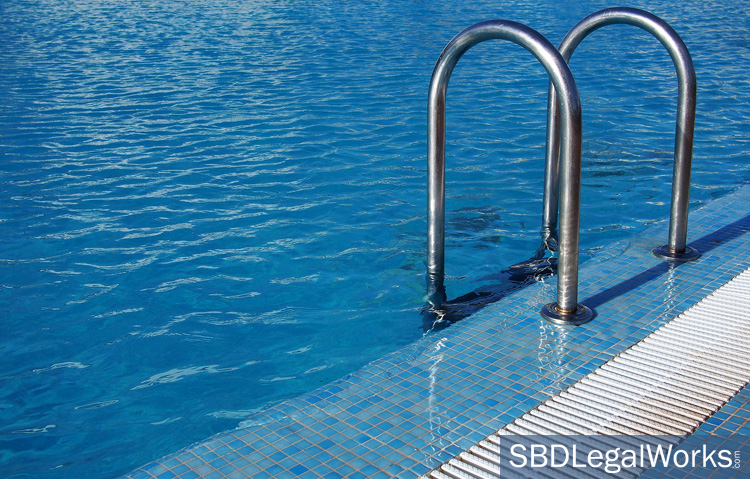
A lot of people swim in the United States—according to the Centers for Disease Control & Prevention (CDC), swimming is the most popular recreational activity for children between the ages of 7 and 17. There are approximately 10 million swimming pools in the U.S. The tragedies of drowning deaths that we hear reported in the media are thankfully rare, but they still occur far too often. There are also times when the tragedy could have been avoided.
If you own a pool, here’s what you need to know about swimming pool negligence and how to prevent yourself from facing a significant lawsuit.
Types of “visitors”
The basic premise of any negligence lawsuit is duty of care—namely, what duty of care do you owe to the people who use your pool? That depends on what kind of visitor they are.
The law places visitors into 3 broad categories:
- Invitees. This refers to someone who might not have been expressly invited, but whom you should have reasonably foreseen coming into the pool.
It’s far more likely to apply to a public pool where express invitations don’t happen, but a higher standard of care is required. It’s difficult to envision a circumstance where you, as a private pool owner, would be dealing with invitees.
- Licensees. This second group of people are the ones you invited over. They are legally defined as people who have permission—either express or implied—to come onto your property for a non-business purpose. If you’re having a picnic and the neighborhood is invited, it will be assumed they are also invited to use the pool—even if you don’t expressly include the pool in your invitation.
In these cases, you have a responsibility to warn your guests of any unsafe conditions that you are aware of, but they aren’t likely to see.
- Trespassers. As you likely guessed, the trespasser is someone not authorized to be on your property. Unsurprisingly, you generally don’t owe trespassers any duty of care. There is one exception to the rule, however, and in the case of swimming pools it’s a pretty significant one.
The attractive nuisance doctrine
There is a concept in premises liability law that’s called the attractive nuisance doctrine. It applies to any situation where children may be attracted, while unable to appreciate the risk. It’s not hard to imagine that swimming pools are one of the leading “attractive nuisances.”
To be held liable under this doctrine, it must be established that you, as the pool owner, know that children are likely to trespass and you know that the trespassing can involve the risk of death or serious bodily harm. Any pool in a suburban neighborhood would fall under this criteria.
Not to worry though, you simply need to take reasonable precautions against the likelihood of children coming and going uninvited. If the pool is in-ground, you might put up a large enough fence around it and lock the doors. An above-ground pool might need tall enough walls that children aren’t going to simply fall in.
If a tragedy does befall a trespassing child, you aren’t automatically in the wrong. If you demonstrate to the court that you took reasonable steps to secure the pool—the steps a reasonable and prudent person would have taken—then you will likely be protected under the law.
Most states have specific laws spelling out the steps pool owners must take. Contact an attorney before you begin the process of putting in the pool, if this is a new upgrade you’re adding to your home. It will save you a lot of headaches down the road and perhaps save a child’s life.